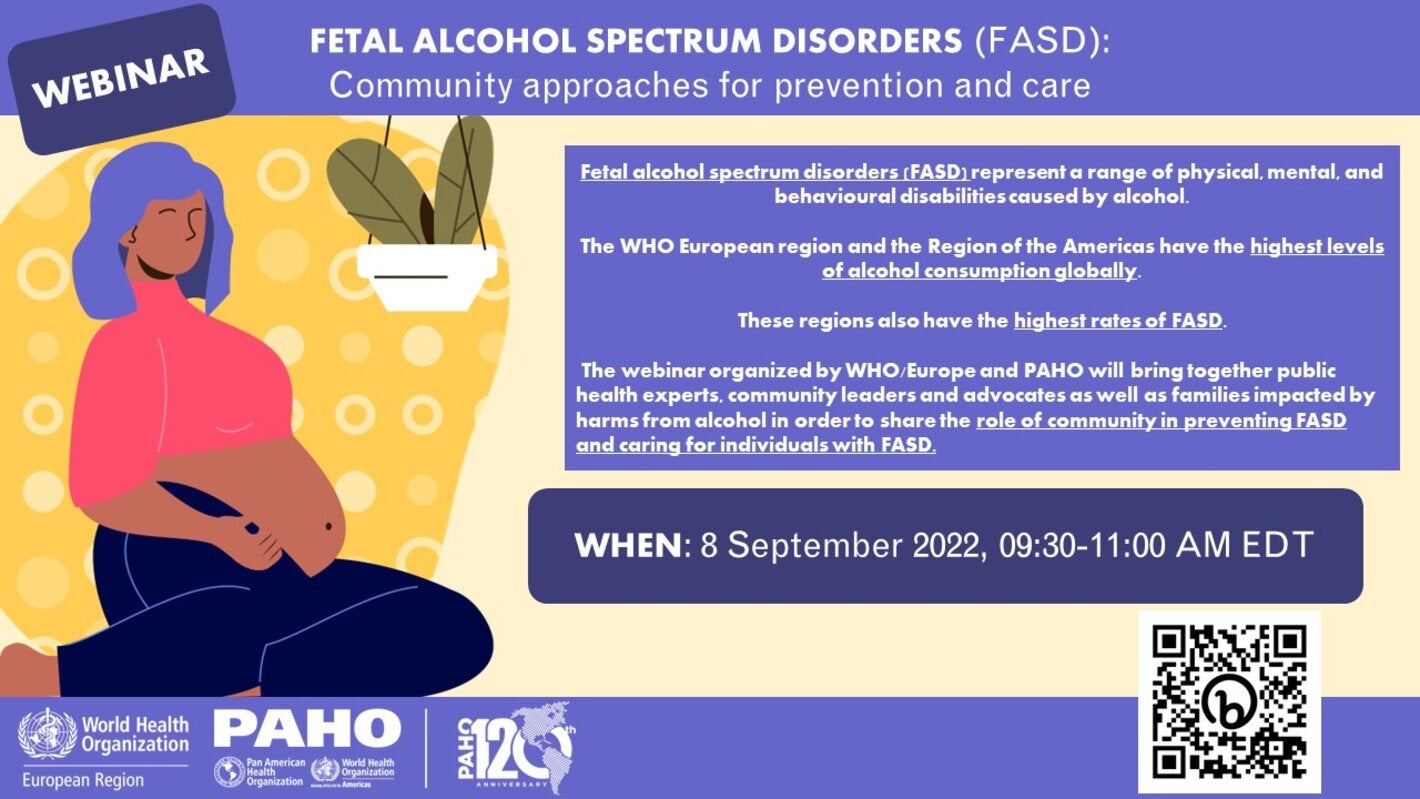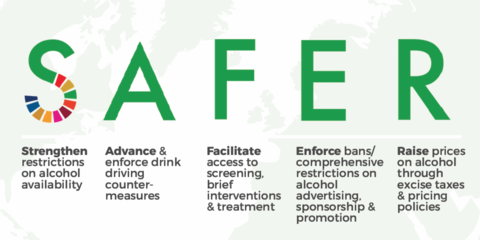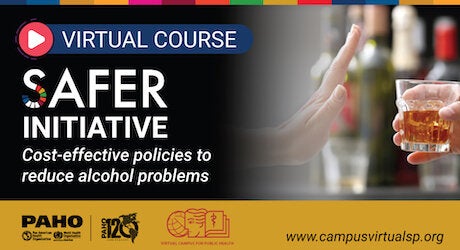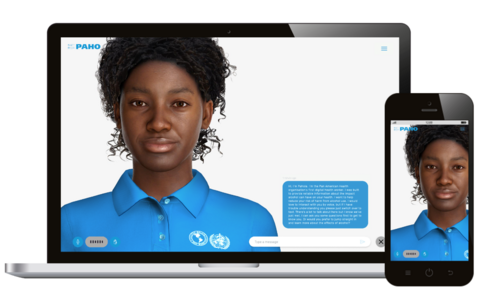
Join us on Thursday, 8 September, at 9:30 AM (EDT), on the webinar "Fetal alcohol spectrum disorders (FASD): Community approaches for prevention and care".
This online event will be hosted by the WHO Regional Office for Europe in partnership with the Pan American Health Organization. The online event will bring together public health experts, community leaders and advocates as well as families impacted by harms from alcohol in order to share the role of community in preventing FASD and caring for individuals with FASD. The online event will include perspectives from both the WHO European and Americas regions, as well as a global perspective on the issue of FASD and the role of communities.
How to participate
- DATE: Thursday, 8 September 2022
- TIME: 9:30 to 11:00 AM [EDT] [check below the local time in other cities]
- REGISTER: https://who.zoom.us/webinar/register/WN_j5ufUL6FRq2M-uXFvUbq2g
- LANGUAGE: Interpretation available in English, Spanish and Russian..
Recording
Background
Fetal alcohol spectrum disorders (FASD) represent a range of physical, mental, and behavioural disabilities caused by alcohol use during pregnancy and are one of the leading developmental disabilities in the world. The WHO European region and the Region of the Americas have the highest levels of alcohol consumption globally. These regions also have the highest rates of Alcohol Use Disorders (ADU) among women, and it is therefore no surprise that WHO estimates that the highest rates of FASD are found in these two regions.
FASD are often misdiagnosed or underdiagnosed, thus delaying impactful interventions, and its diagnosis is complex and often fraught with stigma, attribution of blame towards the mother, and shame. Part of the critical work of reducing stigma and improving prevention and support for individuals and families impacted by FASD is being done at the family and community level, including through self-advocacy efforts.
The aims of this webinar are as follows:
- To provide examples of families and community organizations who are role models for prevention and support of FASD
- To demonstrate how communities and families can be drivers for reducing stigma and improving outcomes.
- To raise awareness among health and social care professionals, policy makers and members of the public on the topic of FASD and ways of improving support and helping families and communities.
Time correspondence
- 6:30 am.– Los Angeles, Vancouver
- 7:30 am. – Belmopan, Guatemala City, Managua, San Jose (CR), San Salvador, Tegucigalpa
- 8:30 am. – Bogota, Mexico City, Panamá City, Kingston, Lima, Quito
- 9:30 am. – Asunción, Bridgetown, Caracas, Castries, Georgetown, Havana, La Paz, Nassau, Ottawa, Port-au-Prince, Port of Spain, San Juan, Santiago, Santo Domingo, Washington DC
- 10:30 am – Buenos Aires, Brasilia, Montevideo, Paramaribo
- 3:30 pm. – Geneva, Madrid
For other cities, check the local time in the following link.
Related links
SAFER - WHO´S package to prevent and reduce alcohol-related death and disability
SAFER initiative: cost-effective policies to reduce alcohol problems



